Raise your hand if you love Reality TV! Now admit to that in public. Now choose that as your academic discipline—to study and teach sociology through the voyeuristically fabulous (and often fabulously fringe) lens of reality TV—and you’ve got today’s wonderful guest, associate professor Danielle Lindemann.
If you, too, let these shows wash over you at the end of a hard day, binge-watching dating shows with increasingly quirky premises or even hate-watching famous families bicker and then make-up, you’re not alone.
“We want to peek into the lives of these interesting people,” Danielle writes. “But it’s their similarity to us that keeps us riveted. We’re voyeurs, but part of what tantalizes us about these freak shows is that the freaks are ourselves.”
More About Danielle: Danielle Lindemann is an Associate Professor of Sociology at Lehigh University who studies gender, sexuality, the family, and culture – particularly as they relate to occupations. Her third book, True Story: What Reality TV Says about Us, is the topic of today’s conversation. She’s also the author of Dominatrix: Gender, Eroticism, and Control in the Dungeon, and Commuter Spouses: New Families in a Changing World. Her work has also been published in scholarly journals such as Social Science & Medicine and featured in media outlets such as The New York Times, the Wall Street Journal, The Economist, The Atlantic, The Washington Post, U.S. News & World Report, CNN, Jezebel, USA Today, and Rolling Stone.
🌟 3 Reasons We Love Reality TV (Excerpted from True Story)
Reality TV is couch-potato fodder, and we shouldn’t apologize for it! “Part of its allure, for many of us, is that we can switch off our brains and let the content rush over us in a relaxing and anesthetic wave.”
Voyeurism and vicarious decision-making: “Yet, paradoxically, in some ways, we can more actively consume these shows than we can scripted TV. Their characters, often, are heightened versions of ourselves placed in more intriguing scenarios than we will typically encounter. You’re not just imagining yourself in the shoes of the ‘smart one,’ you’re imagining yourself in the shoes of the smart one sailing over Tuscany in a hot-air balloon as two men vie for your hand in marriage. The experience of watching these shows, like looking in any mirror, is interactive. We see ourselves, and then we groom ourselves accordingly.”
Hyper-versions of ourselves seen through a fun-house mirror: “In following the contours of our own caricatures, we come to a greater understanding of the forces that society exerts on us—how we organize our lives around beliefs that stem from and reinforce entrenched social hierarchies. From debutantes to doomsday preppers, and from homemakers to hoarders, these programs cast a searchlight on the center as well as the nooks and crannies of society.”
🔗 Resources Mentioned
Danielle on the web, Twitter
Articles: NYT—Reality Stars Are Just Like Us, Inside the Pods With ‘Love Is Blind,’ the Reality TV Juggernaut, Modern Love: Marooned on Love Island; New Yorker—How “Love Is Blind” Transcends the Norms of Reality Television, Literary Hub—Reality TV Is Getting Boring Again– And Maybe That’s a Good Thing
Shows: RuPaul’s Drag Race, Below Deck, Love Island, Love is Blind, Harry & Meghan, Vanderpump Rules, ROHNY, The Kardashians, IMPACT x Nightline S1 E29: Anatomy of a Scandoval: Our Obsession with Gossip and Scandal (Hulu), Farmer Wants a Wife
📚 Books Mentioned
True Story: What Reality TV Says About Us by Danielle Lindemann
Trick Mirror: Reflections on Self-Delusion by Jia Tolentino
🎧 Related Episodes
Podcasts: We Have the Receipts, Decoding Reality, The Ringer Reality TV Podcast, It Was All a Stream
Pivot: 142: Creative Economy Lessons from “The Great Race to Rule Streaming TV” and 209: On Seinfeld, Sensitivity, and Trend Spotting
Learn more about your ad choices. Visit megaphone.fm/adchoices







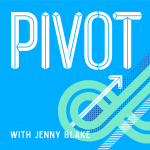
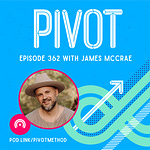
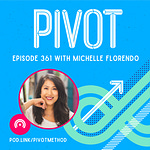
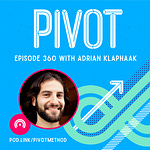
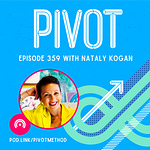

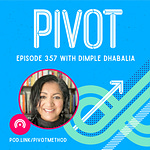
Share this post